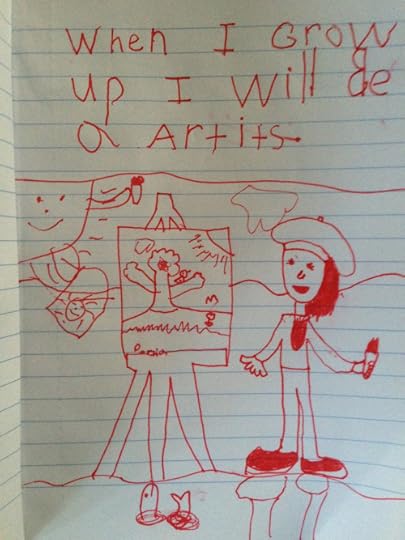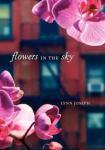Zetta Elliott's Blog, page 59
February 9, 2014
imprint
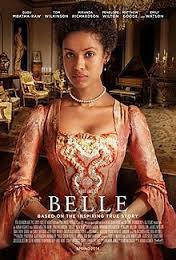 I saw Belle on Thursday night and thought I would write a long review here on the blog, but then yesterday I went to another woman-centered event that left me at a loss for words. I changed my teaching schedule this semester so that I have class Thursday morning, Friday night, and Saturday morning. So far my students are *wonderful*—very sweet and candid about how much they’re enjoying the assigned texts and conversations. After class on Thursday I spent the afternoon in my office; lunch was leftover Indian food from the previous day when I met three women colleagues for our monthly debrief. No students came to office hours and so I lingered awhile to look at our department intern’s wedding photos and then I walked from Chambers St. to Loehmann’s at 7th Ave. and 18th. Rosa met me there, we went next door to have dinner at Cafeteria, and then we caught a cab up to Barnard for the opening night of the Athena Film Festival. The room was packed—mostly white women, mostly middle-aged (I think), but there were plenty of students in the room and some very striking Black women. Rosa pointed out one such woman in an elegant black gown and, of course, it was the director, about her discovery of Jane Austen’s novels as an adult and her fascination with women’s interior lives and marriage prospects. Dido has her own money in the film, so she doesn’t have to marry—she does so for love, and though I’m not a big romantic, that particular love story was intelligent enough to hold my attention. The Zong case is actually central to the film, and that means I can finally teach Marlene NourbeSe Philip’s book of experimental poetry. I left Barnard that night feeling very satisfied with my life. I like to think I’m always aware of my privilege and in class on Saturday we took turns sharing the ways we experience advantage and disadvantage in society. I talked about what it means to be light-skinned in a white supremacist society and the moments I’ve tried to use my unearned privilege to help others. Then class ended and I got some groceries at Whole Foods before heading back to Brooklyn. I had a quick bite and then walked up to the Brooklyn Museum for a 2pm performance, “Mother Tongue Monologues.” It didn’t start for another hour and I fought to keep my eyes from closing; Barbara Smith was there, seated next to the First Lady of NYC, Chirlane McCray,
I saw Belle on Thursday night and thought I would write a long review here on the blog, but then yesterday I went to another woman-centered event that left me at a loss for words. I changed my teaching schedule this semester so that I have class Thursday morning, Friday night, and Saturday morning. So far my students are *wonderful*—very sweet and candid about how much they’re enjoying the assigned texts and conversations. After class on Thursday I spent the afternoon in my office; lunch was leftover Indian food from the previous day when I met three women colleagues for our monthly debrief. No students came to office hours and so I lingered awhile to look at our department intern’s wedding photos and then I walked from Chambers St. to Loehmann’s at 7th Ave. and 18th. Rosa met me there, we went next door to have dinner at Cafeteria, and then we caught a cab up to Barnard for the opening night of the Athena Film Festival. The room was packed—mostly white women, mostly middle-aged (I think), but there were plenty of students in the room and some very striking Black women. Rosa pointed out one such woman in an elegant black gown and, of course, it was the director, about her discovery of Jane Austen’s novels as an adult and her fascination with women’s interior lives and marriage prospects. Dido has her own money in the film, so she doesn’t have to marry—she does so for love, and though I’m not a big romantic, that particular love story was intelligent enough to hold my attention. The Zong case is actually central to the film, and that means I can finally teach Marlene NourbeSe Philip’s book of experimental poetry. I left Barnard that night feeling very satisfied with my life. I like to think I’m always aware of my privilege and in class on Saturday we took turns sharing the ways we experience advantage and disadvantage in society. I talked about what it means to be light-skinned in a white supremacist society and the moments I’ve tried to use my unearned privilege to help others. Then class ended and I got some groceries at Whole Foods before heading back to Brooklyn. I had a quick bite and then walked up to the Brooklyn Museum for a 2pm performance, “Mother Tongue Monologues.” It didn’t start for another hour and I fought to keep my eyes from closing; Barbara Smith was there, seated next to the First Lady of NYC, Chirlane McCray, 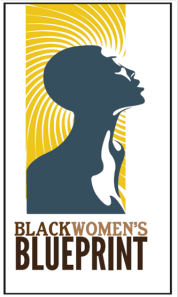 and the auditorium was full of stylish, attractive black women. I bought a ticket because the event was organized by the Black Women’s Blueprint, and I’d just shared Tony Porter’s TED Talk in my morning class so I hoped to hear him in conversation with other Black male pro-feminists. But I didn’t last that long. A procession began and the stage filled with Black women of various ages—they embraced one another and then stood side by side as a poet and drummer took center stage. Then, one by one, women stepped to the mic and shared their harrowing tales of incest and rape. Within five minutes I was in tears but I knew I didn’t have the right to leave. Bearing witness is important—I tell my students that all the time—so I wiped my eyes and stayed in my seat. Yet by the ninth speaker I couldn’t take any more. I left during the story of the 1944 gang rape of Recy Taylor. When I got home, I found the address for Black Women’s Blueprint. Making a donation and sending copies of my books doesn’t make up for my early departure. And I don’t know if my work will make it into the hands of the young woman who stood at the mic with her friend and described a lifetime of abuse—she looked like she was no more than 17. When I left the museum I thought about Barbara Smith and Chirlane McCray and what it might feel like as a Second Wave feminist to sit and listen to so much suffering. We have far better resources for abused women today thanks to them, but we haven’t actually stopped the abuse. We need films like Belle; we need to see Black women in gorgeous gowns who are independently wealthy and politically engaged. She was a real woman and her story needs to be told. But the harsh, ongoing reality of rape culture can’t be avoided. There is an assault in the film, and I’m sure Dido faced numerous insults that we’ll never know about. But most Black women in British colonies had no protection, no wealth, and no status in society. And though the condition of Black women has improved since then—my privileged life is proof of that—the abuse persists. Those stories need to be told, too. Told—and heard.
and the auditorium was full of stylish, attractive black women. I bought a ticket because the event was organized by the Black Women’s Blueprint, and I’d just shared Tony Porter’s TED Talk in my morning class so I hoped to hear him in conversation with other Black male pro-feminists. But I didn’t last that long. A procession began and the stage filled with Black women of various ages—they embraced one another and then stood side by side as a poet and drummer took center stage. Then, one by one, women stepped to the mic and shared their harrowing tales of incest and rape. Within five minutes I was in tears but I knew I didn’t have the right to leave. Bearing witness is important—I tell my students that all the time—so I wiped my eyes and stayed in my seat. Yet by the ninth speaker I couldn’t take any more. I left during the story of the 1944 gang rape of Recy Taylor. When I got home, I found the address for Black Women’s Blueprint. Making a donation and sending copies of my books doesn’t make up for my early departure. And I don’t know if my work will make it into the hands of the young woman who stood at the mic with her friend and described a lifetime of abuse—she looked like she was no more than 17. When I left the museum I thought about Barbara Smith and Chirlane McCray and what it might feel like as a Second Wave feminist to sit and listen to so much suffering. We have far better resources for abused women today thanks to them, but we haven’t actually stopped the abuse. We need films like Belle; we need to see Black women in gorgeous gowns who are independently wealthy and politically engaged. She was a real woman and her story needs to be told. But the harsh, ongoing reality of rape culture can’t be avoided. There is an assault in the film, and I’m sure Dido faced numerous insults that we’ll never know about. But most Black women in British colonies had no protection, no wealth, and no status in society. And though the condition of Black women has improved since then—my privileged life is proof of that—the abuse persists. Those stories need to be told, too. Told—and heard.


February 7, 2014
28 Days Later 2014
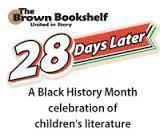 Every year in February the team of authors and illustrators over at The Brown Bookshelf features a range of Black contributors to the kidlit community. I was surprised and honored to be invited to participate this year, and my interview can be found here. Here’s a bit of what I had to say:
Every year in February the team of authors and illustrators over at The Brown Bookshelf features a range of Black contributors to the kidlit community. I was surprised and honored to be invited to participate this year, and my interview can be found here. Here’s a bit of what I had to say:
I often listen to Emeli Sandé and I once heard her say in an interview that she felt the people attending her concerts were outsiders; she was happy that her music served as a vehicle for creating community among people who often felt alone. I identify with that idea—I love that more and more Black people are openly identifying as geeks and nerds (or “blerds”). The Afropunk community creates space for so many different kinds of Black folks, and that didn’t seem possible when I was growing up. If you weren’t into hip hop, you weren’t Black—end of conversation. I’m drawn to artists who support the idea of Black multiplicity. We aren’t monolithic; here in the US and across the African diaspora we’re an incredibly diverse group and that’s a strength, not a weakness. I think young adult literature needs to reflect that reality.


February 4, 2014
I love my nieces
January 31, 2014
Education at the Crossroads
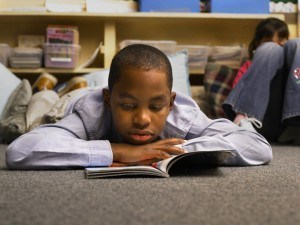 Last night I had the privilege of talking about my books with Basir Mchawi, host of WBAI’s Education at the Crossroads. The podcast is already available if you want to listen to our half hour conversation about decolonizing the imagination and honoring the ancestors in our daily lives. Basir responded immediately when I reached out to him last fall about the release of The Deep; he even took the time to read Ship of Souls and The Deep. New York’s other public radio station has shown no interest, so I’m very grateful for this opportunity to talk about my work. WBAI is just entering their winter fundraising campaign, so if you appreciate their commitment to diversity and social justice, please make a donation here.
Last night I had the privilege of talking about my books with Basir Mchawi, host of WBAI’s Education at the Crossroads. The podcast is already available if you want to listen to our half hour conversation about decolonizing the imagination and honoring the ancestors in our daily lives. Basir responded immediately when I reached out to him last fall about the release of The Deep; he even took the time to read Ship of Souls and The Deep. New York’s other public radio station has shown no interest, so I’m very grateful for this opportunity to talk about my work. WBAI is just entering their winter fundraising campaign, so if you appreciate their commitment to diversity and social justice, please make a donation here.


January 28, 2014
open door
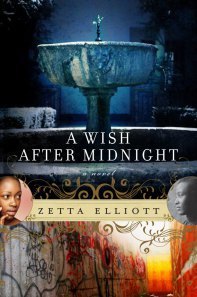 Yesterday I spent the day at Brooklyn Excelsior Charter School. This was my fourth annual visit to the school and as always, I was made to feel welcome the moment I stepped through the door. There was a new receptionist at the front desk but she greeted me by name before I even opened my mouth; she’d learned all about me from the librarian, Mrs. Robinson, who might be my most ardent fan! Her passion for A Wish After Midnight has spread throughout the entire seventh grade and within minutes of my arrival I was asked—yet again—when the sequel would be coming out. Even at my aunt’s funeral last November my mother’s friend offered her condolences and then asked me about Judah’s Tale. I MUST FINISH THAT BOOK! I’m hoping 12 Years a Slave will clean up at the Oscars in March and it would be good to ride that wave of interest in the slavery era, especially since I used Solomon Northrup’s kidnapping case to map Judah’s journey from north to south. I just bought my ticket to the premiere of Belle, which looks amazing. For once, people aren’t trying to avoid the subject of slavery.
Yesterday I spent the day at Brooklyn Excelsior Charter School. This was my fourth annual visit to the school and as always, I was made to feel welcome the moment I stepped through the door. There was a new receptionist at the front desk but she greeted me by name before I even opened my mouth; she’d learned all about me from the librarian, Mrs. Robinson, who might be my most ardent fan! Her passion for A Wish After Midnight has spread throughout the entire seventh grade and within minutes of my arrival I was asked—yet again—when the sequel would be coming out. Even at my aunt’s funeral last November my mother’s friend offered her condolences and then asked me about Judah’s Tale. I MUST FINISH THAT BOOK! I’m hoping 12 Years a Slave will clean up at the Oscars in March and it would be good to ride that wave of interest in the slavery era, especially since I used Solomon Northrup’s kidnapping case to map Judah’s journey from north to south. I just bought my ticket to the premiere of Belle, which looks amazing. For once, people aren’t trying to avoid the subject of slavery.
It’s not easy doing five back-to-back presentations; by the third one my voice was starting to go, but the students and staff at Brooklyn Excelsior were so wonderful—attentive, engaged, excited. Mrs. Robinson plied me with snacks in between presentations and then ordered lunch for me; I spent the sixth period in the principal’s office talking about literacy and ways to engage reluctant readers. Another principal was visiting the school from upstate and she asked for a copy of Bird for her son. As I headed back to the library the receptionist slipped me a few pages of her memoir, which she hopes to publish soon. I stepped out into the hallway and a teacher rushed up to tell me how much she loved Bird, which she shared with her 5th-grade students a few years earlier. I did my last presentation and then went back into the hallway and another teacher rushed up to shake my hand and tell me how much she loved A Wish After Midnight. An author couldn’t ask for a better day! I hope to continue partnering with this school and others like it in the future.
One of my goals for 2014 is to make connections with people in the film industry. It breaks my heart to have kids ask over and over, “When is the movie coming out?” When I finish presenting on Ship of Souls—especially if I end with a reading—boys rush up and ask where they can get the book. But when I talk about The Deep or A Wish After Midnight, it’s mostly girls who crowd around me, casting themselves in the starring role of films that may never be made:
“I could play Genna!”
“I could be Nyla, right? I want to be Nyla.”
They look at me with such complete confidence—like they truly believe I can snap my fingers and make it happen. Can I? I barely know how to use Twitter but it might be time to reach out to Jada Pinkett Smith and Alicia Keys and Ava DuVernay…women who really DO make movies.


January 26, 2014
dreamworld
 An unfinished novel is a tyrant. I’ve spent weeks (years, really) avoiding this novel but it MUST get done and today is the day I open the file and try to pick up where I left off. I hoped to finish Judah’s Tale over winter break, but instead I have dithered and written one essay and “Fox & Crow.” And because I need to be writing but am not, my sensitivity is growing and the littlest thing sets me dreaming. I ought to avoid Facebook if I want to get anything done, but instead it’s been feeding my imagination. Neesha posted this link to “22 Unbelievable Places” and this image of the Black Forest in Germany (photographer Andy Linden says it’s London—of course) makes me want to discard Judah’s Tale and write something medieval instead. Today For Harriet posted 5 poems by Black women; I’m ashamed to say I don’t read poetry often but I’m glad I took the time to read the first four poems. I stopped at this one by Audre Lorde, “A Woman Speaks,” and suspect I will end up using these 2 lines of verse in a book other than the one I’m determined to finish:
An unfinished novel is a tyrant. I’ve spent weeks (years, really) avoiding this novel but it MUST get done and today is the day I open the file and try to pick up where I left off. I hoped to finish Judah’s Tale over winter break, but instead I have dithered and written one essay and “Fox & Crow.” And because I need to be writing but am not, my sensitivity is growing and the littlest thing sets me dreaming. I ought to avoid Facebook if I want to get anything done, but instead it’s been feeding my imagination. Neesha posted this link to “22 Unbelievable Places” and this image of the Black Forest in Germany (photographer Andy Linden says it’s London—of course) makes me want to discard Judah’s Tale and write something medieval instead. Today For Harriet posted 5 poems by Black women; I’m ashamed to say I don’t read poetry often but I’m glad I took the time to read the first four poems. I stopped at this one by Audre Lorde, “A Woman Speaks,” and suspect I will end up using these 2 lines of verse in a book other than the one I’m determined to finish:
beware my smile
I am treacherous with old magic
Those lines make me think of Nyla and the djeli she finds in Senegal, but I have other characters who need my attention right now. The spring semester starts on Thursday; I have a full-day school visit tomorrow and five other presentations in February. My talk at Harvard is in a few weeks. But today I am giving Judah my attention because sometimes that’s all tyrants want—your undivided attention.


January 23, 2014
kith & kin
 After having 3 migraines in 24 hours, I went to work today for 5 hours of advising. It wasn’t as chaotic as I thought it would be, and I was glad I had some tissue to share when a young woman sat down and burst into tears. She had hoped to earn a scholarship to Barnard but then a friend and a close relative committed suicide in the same year. She withdrew from all her courses and took a full-time job but was eventually let go. Now she’s back at school, feeling like she messed up. I don’t know a whole lot about our degree requirements (I take a training every year but the rules keep changing) but I know a little something about losing a loved one to suicide. I hope that student believed me when I told her that 1) she was not responsible for what happened to her loved ones, and 2) it wasn’t too late to resume her studies and impress the scholarship committee at Barnard. As expected, she hadn’t told them about her extenuating circumstances and so I encouraged her to write a letter or explain in person. I probably only advised 10 students today but talking to them one on one reminds me why I love to teach at the college level—and why I write for young adults. They’re on the cusp—no longer innocent yet so much of the world is still unknown to them. Life is still exciting and they believe in their own potential; they haven’t yet become jaded or defeated. I received so much support from the educators in my life, so I hope I’m doing the same for my own students. My high school English teacher read The Deep and sent me this rave review in an email:
After having 3 migraines in 24 hours, I went to work today for 5 hours of advising. It wasn’t as chaotic as I thought it would be, and I was glad I had some tissue to share when a young woman sat down and burst into tears. She had hoped to earn a scholarship to Barnard but then a friend and a close relative committed suicide in the same year. She withdrew from all her courses and took a full-time job but was eventually let go. Now she’s back at school, feeling like she messed up. I don’t know a whole lot about our degree requirements (I take a training every year but the rules keep changing) but I know a little something about losing a loved one to suicide. I hope that student believed me when I told her that 1) she was not responsible for what happened to her loved ones, and 2) it wasn’t too late to resume her studies and impress the scholarship committee at Barnard. As expected, she hadn’t told them about her extenuating circumstances and so I encouraged her to write a letter or explain in person. I probably only advised 10 students today but talking to them one on one reminds me why I love to teach at the college level—and why I write for young adults. They’re on the cusp—no longer innocent yet so much of the world is still unknown to them. Life is still exciting and they believe in their own potential; they haven’t yet become jaded or defeated. I received so much support from the educators in my life, so I hope I’m doing the same for my own students. My high school English teacher read The Deep and sent me this rave review in an email:
The Deep is a real page-turner that had me on the edge of my couch, reading fast to find out what would happen next. I really enjoyed the characters, the whole mad idea, and the well constructed, believable dialogue. I was sad to see the last of Nyla, although I believe she is on to a new phase that you will bring to your readers. The idea of her finding her mother is very gripping, while the other characters are also quite credible and interesting. I was surprised at how effective the whole idea was, because at another level, of course, it is outrageous to imagine: it was impressive to recognize the invented separate world that the reader could accept along with carefully devised characters from the real world. These parents behave like normal parents and the long-lost mother shows very interestingly the different sides of her torn character. The edge of ruthlessness in Nyla’s personality is both shocking and encouraging: the cause needs her courage.
Then yesterday, in between migraines, I got this lovely message from my aunt who had just finished the novel:
I didn’t want it to end…and turned the last page muttering…’NO”…you can’t do this to me!”
Zetta “The Deep’ is so good…The ultimate fight of good over evil is so skillfully portrayed and your character development took me intimately into the lives of D, Keem, Nyla, Roan and Lada…
So you know what I am going to ask you…the sequel? When? Hoping you will reach under your bed and pull out the finished manuscript and say…Oh…well…I was going to wait but Faith needs it now so I will publish it sooner :))
I am so incredibly proud of you…of your ability and the way you are developing strong black women in literature as role models…
Love you…
Lately I’ve been having a conversation with a friend about gratitude. To me, gratitude isn’t something you give (or owe) to another person; it’s something you cultivate within yourself so that you see abundance in every area of your life…


January 17, 2014
blurry
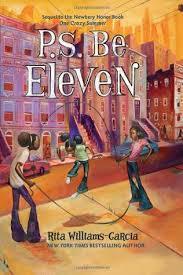 Yesterday I learned that my niece finished reading The Deep. She turns ten in a couple of weeks and I’ve got P.S. Be Eleven wrapped and ready to send. M’s a voracious reader and my primary job as a long-distance aunty is to keep her supplied with multicultural books. At first I was horrified by the idea of M reading a novel I intended for teenagers. The Deep opens with a sexual assault that takes place during a school dance, and there is also brief mention of sexting and suicide—I recommend it for kids 13 and up. But then M’s mom told me that she’d already had to have a conversation with my niece about sexual assault; once when her classmate’s older sister was gang raped and subsequently committed suicide, and again when my niece wondered why her mother didn’t like the song “Blurred Lines.” A nine-year-old shouldn’t have to worry about rape, but I’m glad she’s got parents who choose to inform her rather than keep her ignorant. It’s an issue I choose to engage in my young adult novels because it is the sad reality for far too many teens, and fiction can sometimes make tough topics easier to discuss. At the very least, writing about rape ensures other assault survivors that they aren’t alone and since I write historical fiction, I can also demonstrate that Black women have been resisting and recovering from rape for centuries.
Yesterday I learned that my niece finished reading The Deep. She turns ten in a couple of weeks and I’ve got P.S. Be Eleven wrapped and ready to send. M’s a voracious reader and my primary job as a long-distance aunty is to keep her supplied with multicultural books. At first I was horrified by the idea of M reading a novel I intended for teenagers. The Deep opens with a sexual assault that takes place during a school dance, and there is also brief mention of sexting and suicide—I recommend it for kids 13 and up. But then M’s mom told me that she’d already had to have a conversation with my niece about sexual assault; once when her classmate’s older sister was gang raped and subsequently committed suicide, and again when my niece wondered why her mother didn’t like the song “Blurred Lines.” A nine-year-old shouldn’t have to worry about rape, but I’m glad she’s got parents who choose to inform her rather than keep her ignorant. It’s an issue I choose to engage in my young adult novels because it is the sad reality for far too many teens, and fiction can sometimes make tough topics easier to discuss. At the very least, writing about rape ensures other assault survivors that they aren’t alone and since I write historical fiction, I can also demonstrate that Black women have been resisting and recovering from rape for centuries.
 I understand M plans to write me a letter about The Deep—I’m anxious to hear her impressions! I know she’s wondering when the next book will be done. Today I met Lyn Miller-Lachmann for breakfast and we talked about serializing young adult lit. We both have so many projects that are almost ready to go—but what’s the best way to connect with readers? Should an author give readers everything she’s got, or ration books in order to build anticipation? Would selling a novel chapter by chapter appeal to reluctant readers who are intimidated by lengthy books? I think of Netflix and their new model that allows viewers to watch all available episodes of a particular show. I do binge sometimes and if season 4 of Games of Thrones were available to view all at once, I’d probably get sucked in. Downton Abbey is so slow and boring that I don’t mind waiting a week for each new episode, but is it the same when you’re reading a book? I’m nearly done with Hild by Nicola Griffith (amazing!) and feel like I’ll be lost once I reach page 536 and finally have to leave that world behind. But it’s not the kind of book I’d want to read in pre-determined installments—I needed to be immersed even if it took me a week to reach the end. But that’s me—I wanted to hold the physical book in my hands and I needed to read long chunks of it in silence. Teens today are constantly multi-tasking and battling endless distractions—does that mean they’re wired for shorter stories and bite-size books? My niece reads up to five books at a time (and finishes them all)! I think I’m too much of a traditionalist to give up printed books but it’s important to consider all the options. If there’s a book for every reader, should there be a format for every reader, too?
I understand M plans to write me a letter about The Deep—I’m anxious to hear her impressions! I know she’s wondering when the next book will be done. Today I met Lyn Miller-Lachmann for breakfast and we talked about serializing young adult lit. We both have so many projects that are almost ready to go—but what’s the best way to connect with readers? Should an author give readers everything she’s got, or ration books in order to build anticipation? Would selling a novel chapter by chapter appeal to reluctant readers who are intimidated by lengthy books? I think of Netflix and their new model that allows viewers to watch all available episodes of a particular show. I do binge sometimes and if season 4 of Games of Thrones were available to view all at once, I’d probably get sucked in. Downton Abbey is so slow and boring that I don’t mind waiting a week for each new episode, but is it the same when you’re reading a book? I’m nearly done with Hild by Nicola Griffith (amazing!) and feel like I’ll be lost once I reach page 536 and finally have to leave that world behind. But it’s not the kind of book I’d want to read in pre-determined installments—I needed to be immersed even if it took me a week to reach the end. But that’s me—I wanted to hold the physical book in my hands and I needed to read long chunks of it in silence. Teens today are constantly multi-tasking and battling endless distractions—does that mean they’re wired for shorter stories and bite-size books? My niece reads up to five books at a time (and finishes them all)! I think I’m too much of a traditionalist to give up printed books but it’s important to consider all the options. If there’s a book for every reader, should there be a format for every reader, too?


January 16, 2014
building book stamina
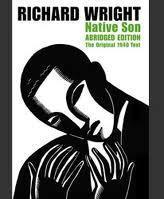 Yesterday I went to work for the first time since winter break began. I had lunch with several colleagues and, as usual, we shared stories about our students—the best and the worst. One student I’ll always remember told me at the end of the semester that he had never finished reading a book until he took my class on Black Women in the Americas. He had to be close to 25 years old and he was very bright (despite admitting he only took the class to meet women). He later decided to write a novel himself, which was the ultimate reward for me. As an educator, it’s heartbreaking to stand at the front of a classroom and see no hands raised when I ask, “How many people finished a novel in the past week? The past month?” The vast majority of my students (who are mostly Black and Latino, working class) don’t read recreationally. Reading isn’t fun and they don’t understand that reading truly is fundamental. Many of my students don’t know what Standard English looks like because they don’t hear it in their homes or communities and they‘ve never seen don’t regularly see it printed on a page; as a result, they write based on oral/aural knowledge—”would of been” instead of “would have been.” I taught a writing intensive class for the first time last fall and it was incredibly demoralizing. At one point I actually told my students that I felt like I’d missed the bus—trying to develop a love of literature in 20-year-olds is extremely challenging. If you don’t hook kids when they’re young, it’s hard to develop new habits later on. I took the advice of my senior colleagues and removed Ralph Ellison’s Invisible Man from my syllabus. They still had to read Richard Wright’s Native Son and out of 20 students, only 3 made it to the end. But at the end of the semester, many said the novel was their favorite assigned reading. So there’s hope—IF you can hook them on a narrative that’s exciting, fast-paced, and not too long.
Yesterday I went to work for the first time since winter break began. I had lunch with several colleagues and, as usual, we shared stories about our students—the best and the worst. One student I’ll always remember told me at the end of the semester that he had never finished reading a book until he took my class on Black Women in the Americas. He had to be close to 25 years old and he was very bright (despite admitting he only took the class to meet women). He later decided to write a novel himself, which was the ultimate reward for me. As an educator, it’s heartbreaking to stand at the front of a classroom and see no hands raised when I ask, “How many people finished a novel in the past week? The past month?” The vast majority of my students (who are mostly Black and Latino, working class) don’t read recreationally. Reading isn’t fun and they don’t understand that reading truly is fundamental. Many of my students don’t know what Standard English looks like because they don’t hear it in their homes or communities and they‘ve never seen don’t regularly see it printed on a page; as a result, they write based on oral/aural knowledge—”would of been” instead of “would have been.” I taught a writing intensive class for the first time last fall and it was incredibly demoralizing. At one point I actually told my students that I felt like I’d missed the bus—trying to develop a love of literature in 20-year-olds is extremely challenging. If you don’t hook kids when they’re young, it’s hard to develop new habits later on. I took the advice of my senior colleagues and removed Ralph Ellison’s Invisible Man from my syllabus. They still had to read Richard Wright’s Native Son and out of 20 students, only 3 made it to the end. But at the end of the semester, many said the novel was their favorite assigned reading. So there’s hope—IF you can hook them on a narrative that’s exciting, fast-paced, and not too long.
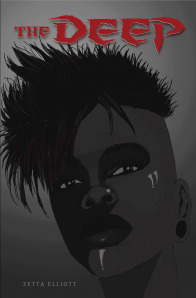 One reason I didn’t send The Deep out to bloggers for review is because I’m trying to reach reluctant readers. And if you’re blogging about books or following a book blog, you’re probably already an avid reader and less likely to be satisfied with a short page-turner. If I gave The Deep to my community college students, I doubt anyone would complain that it’s too short. I go into dozens of Brooklyn middle schools every year, and students most often say, “When is the next book coming out?” In one special education class, a boy proudly raised his hand and said, “I read your book—twice!” And for me, that’s a sign that I’m building stamina in kids who have seen all the Harry Potter films but would never even try to read the novels. When I send a manuscript to an editor and she starts talking about Divergent, I know we’re not on the same page. I’m not trying to write hi-lo fiction (books for teens reading far below grade level), but I’m glad there are people out there making sure those teens DO have something to read. I think it was my librarian friend Vanessa Irvin Morris who introduced me to this quote: “For every reader, a book.” It’s one of the 5 Laws of Library Science developed by S. Ranganathan. I don’t mean to suggest that all Black teens are reluctant readers—I certainly wasn’t, and the two or three college students who tell me they love to read have been in love with books since they were children. And just because I write for reluctant readers doesn’t mean my books are flawless—the goal isn’t “any ol’ book for every reader” but really good books for readers of all kinds. So I appreciate The Book Smugglers‘ review of The Deep—no one knows more about YA fantasy fiction and they were impressed by Ship of Souls:
One reason I didn’t send The Deep out to bloggers for review is because I’m trying to reach reluctant readers. And if you’re blogging about books or following a book blog, you’re probably already an avid reader and less likely to be satisfied with a short page-turner. If I gave The Deep to my community college students, I doubt anyone would complain that it’s too short. I go into dozens of Brooklyn middle schools every year, and students most often say, “When is the next book coming out?” In one special education class, a boy proudly raised his hand and said, “I read your book—twice!” And for me, that’s a sign that I’m building stamina in kids who have seen all the Harry Potter films but would never even try to read the novels. When I send a manuscript to an editor and she starts talking about Divergent, I know we’re not on the same page. I’m not trying to write hi-lo fiction (books for teens reading far below grade level), but I’m glad there are people out there making sure those teens DO have something to read. I think it was my librarian friend Vanessa Irvin Morris who introduced me to this quote: “For every reader, a book.” It’s one of the 5 Laws of Library Science developed by S. Ranganathan. I don’t mean to suggest that all Black teens are reluctant readers—I certainly wasn’t, and the two or three college students who tell me they love to read have been in love with books since they were children. And just because I write for reluctant readers doesn’t mean my books are flawless—the goal isn’t “any ol’ book for every reader” but really good books for readers of all kinds. So I appreciate The Book Smugglers‘ review of The Deep—no one knows more about YA fantasy fiction and they were impressed by Ship of Souls:
For such a short novel, The Deep, an Urban Fantasy with contemporary YA trappings packs a lot: from the introduction to a whole new, hidden underground world and a secret group that keeps evil at bay to the idea that what said group might be doing is not entirely that black and white; from expanding on the previous book by continuing Dmitri’s story but also focusing on Nyla’s own including her past, her present, her parent’s own struggles, her love life, her developing magical powers, etc. Although it is true that a person’s life is a complex mixture of different threads and the book speaks to this, I am not sure that everything combines seamlessly here.
The book greatest strengths are Zetta Elliott’s (always) beautiful writing and the careful, powerful characterisation of Nyla and of those who surround her. Zetta Elliott is at her best when writing about characters’ emotional make-up and Nyla’s relationship with her family, her stepmother, her boyfriend (and his family) are beautifully portrayed.
I’m sorry it fell short for them in the end, but self-published books often don’t get reviewed at all so I truly appreciate that these expert bloggers gave my book a serious critique. I’m gearing up for the next round of school visits here in Brooklyn and look forward to hearing what teens think about The Deep. As an educator, I’m supposed to teach students how to analyze the texts they consume but as an author, I have to say I’m happy just to get swarmed by eager young readers at the end of my presentation. Seeing kids of color clamoring for books makes my heart soar…


January 7, 2014
2013 African American Fiction for Teens
It’s that time of year again! Edi Campbell kindly gave me her list of 2013 books by PoC (people of color) and I pulled out the fiction books by Black authors (middle grade and young adult). As always, if you see that we’ve missed a title, please let us know.
I have not added titles from Saddleback Educational Publishing, a press devoted to hi-lo fiction for teens. You can find Saddelback’s Black authors on our 2011 and 2012 lists.
Two of the titles are reprints. Walter Dean Myers, outgoing National Ambassador for Young People’s Literature, had a good year with 3 titles; Amar’e Stoudemire and Kelli London had 2 titles each, as did Ni-Ni Simone and Amir Abrams. How many of the remaining authors made their debut in 2013? Less than ten, by my count.
According to a recent article in New York Magazine, there were over 10,000 young adult novels available in 2012. A YALSA source suggests 3,000 YA novels are published annually in the US.
MG=middle grade (8-12) YA=young adult (12-18)
Bereft by Craig Laurance Gidney (Tiny Satchell Press; January) YA
STAT #3: Slam Dunk by Amar’e Stoudemire (Scholastic Paperbacks; January) MG
Sweet 16 to Life: A Langdon Prep Novel by Kimberly Reid (KTeen; January) YA
Reality Check: Charly’s Epic Fiasco by Kelli London (KTeen; February) YA
Drifting by Lisa R. Nelson (Tiny Satchel Press; February) YA
Flowers in the Sky by Lynn Joseph (Harper Teen; March) YA
Orleans by Sherri L. Smith (Putnam Juvenile; March) YA
The Summer Prince by Alaya Dawn Johnson (Arthur A. Levine Books; March) YA
Twelve Days of New York by Tonya Bolden and Gilbert Ford (Abrams; March) MG
Hollywood High: Get Ready for War by Ni-Ni Simone and Amir Abrams (Kensington; March) YA
Panic by Sharon Draper (Atheneum; March) YA
Revenge of a Not-So-Pretty Girl by Carolita Blythe (Delacorte; April) YA
The Laura Line by Crystal Allen (Balzer + Bray; April) MG
Darius and Twig by Walter Dean Myers (Harper; April) YA
P.S. Be Eleven by Rita Williams Garcia (Amistad; May) MG
Sugar by Jewell Parker Rhodes (Little, Brown Books for Young Readers; May) MG
Get Over It by Nikki Carter (Dafina Press; May) YA
The Girl of His Dreams by Amir Abrams (K-Teen/Dafina; June) YA
Paparazzi Princesses by Bria Williams, Reginae Carter, and Karyn Folan (Cash Money Content; June) YA
Dork Diaries 6: Tales from a Not-So-Happy-Heartbreaker by Rachel Renee Russell (Aladdin; June) MG
Charm and Strange by Stephanie Kuehn (St. Martin Press; June) YA
Star Power (Charly’s Epic Fiasco) by Kelli London (Kensington; July) YA
Way Too Much Drama by Earl Sewell (Kimani Tru; July) YA
Sunday You Learn How to Box by Bil Wright (Scribner; August—reprint) YA
The Cruisers: Oh, Snap! by Walter Dean Myers (Scholastic; August) MG
STAT #4: Schooled by Amar’e Stoudemire (Scholastic Paperbacks; August) MG
Goal Line by Tiki & Ronde Barber, with Paul Mantell (Simon & Schuster/Paula Wiseman Books; August—reprint) MG
Zero Fade by Chris Terry (Curbside Splendor; September) YA
You Don’t Know Me Like That by Reshonda Tate Billingsly (K-Teen/Dafina; September) YA
Streetball Crew Book One: Sasquatch in the Paint by Kareem Abdul Jabar (Disney-Hyperion; September) MG
Invasion by Walter Dean Myers (Scholastic; October) YA
The Case of the Time Capsule Bandit by Octavia Spencer (Simon & Schuster Books for Young Readers; October) MG
True Story by Ni-Ni Simone (KTeen/Dafina; November) YA
Jump Shot by Tiki & Ronde Barber, with Paul Mantell (Simon & Schuster/Paula Wiseman Books; November) MG
He Said, She Said by Kwame Alexander (Amistad; November) YA
Cy in Chains by David L. Dudley (Clarion Books; December) YA



